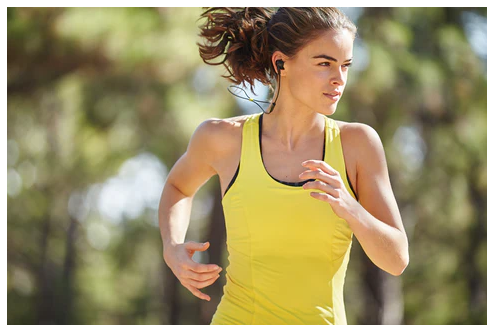“What we found was not what we expected,” says Eelco van Dongen. “Animal research has shown that exercising immediately after a memory task improves memory.” That it only works in humans after a few hours of delay was therefore one of those accidental discoveries that abounds in science.
Brain researcher Van Dongen and four colleagues conducted this research at the Donders Institute of Radboud University in Nijmegen. They divided 72 subjects into three groups: a group who exercised immediately after the memory task, a group who did not climb on the bicycle ergometer until four hours later, and a group who did not exercise until the repeat test, two days later. Van Dongen and his colleagues expected that the first group would show the strongest effect, while the late and non-cyclists were actually intended as control groups.
Remember pictures
In the memory task, each subject had to look at ninety pictures of an object and remember where it was placed. Immediately after this session, there was a test with the objects in the center of the picture, to see how many objects had their position correctly remembered. Two days later, the subjects came back and did the same test again. In this repeat test, the subjects were placed in an fMRI scanner, so that their brain activity could be mapped.
The result was surprising: the group that had exercised immediately after the first memory task scored no better than the group that did not exercise. But the group that exercised four hours after the memory task clearly scored better. In all groups, the subjects remembered fewer pictures in the repeat test than in the first test, but in the ‘late exercise’ group the knowledge took hold the best; those subjects retained 87 percent of their immediate memory in the repeat test, compared with 80 percent of the other two groups.
Exercising immediately after the memory task is therefore not even less effective than delayed sports, it does not work at all.
Signals in the brain
Why exercise at all helps to preserve memories is only partly known. The theory is that the brain stores memories for a short time first, and then a selection from them for a longer period of time. It has been measured in laboratory animals that this long-term storage (‘consolidation’) is accompanied by an increased production of certain signal substances in the brain, such as dopamine and noradrenaline. But intensive physical exertion also stimulates the production of these substances.
It is not known why stimulating this consolidation through exercise only takes effect after hours in humans. Van Dongen: “People remember very different things than rodents, and in a different way. So it’s not so strange now.” According to Van Dongen, a possible explanation is that the production of dopamine and noradrenaline is already optimal for consolidation shortly after the memory task, collapses after a few hours, and can then be boosted by exercise. This is nothing more than speculation for the time being.
hippocampus
The brain scans during the repeat test showed (on average) a clear difference between someone who gives a correct answer and someone who gives an incorrect answer. However, this difference was the same for all three groups. What set the late-exercise group’s scans apart from the rest was activity in the hippocampus, an area of the brain closely involved in the formation of memories. In the late-exercise group, the patterns that lit up in this area were found to be less noisy than in the other two groups.
The question remains whether the more or less arbitrarily chosen delay of four hours is optimal. Van Dongen, who is now working in a different field of research: “This is research that requires a relatively large amount of manpower and time, but there are plans to explore this further.” If you are a student who still has to study for a re-exam around this time, you don’t have to wait for that. Just put it to the test: about four hours after you’ve thrown the books aside, go for a workout or go for a bike ride. It certainly can’t hurt.


